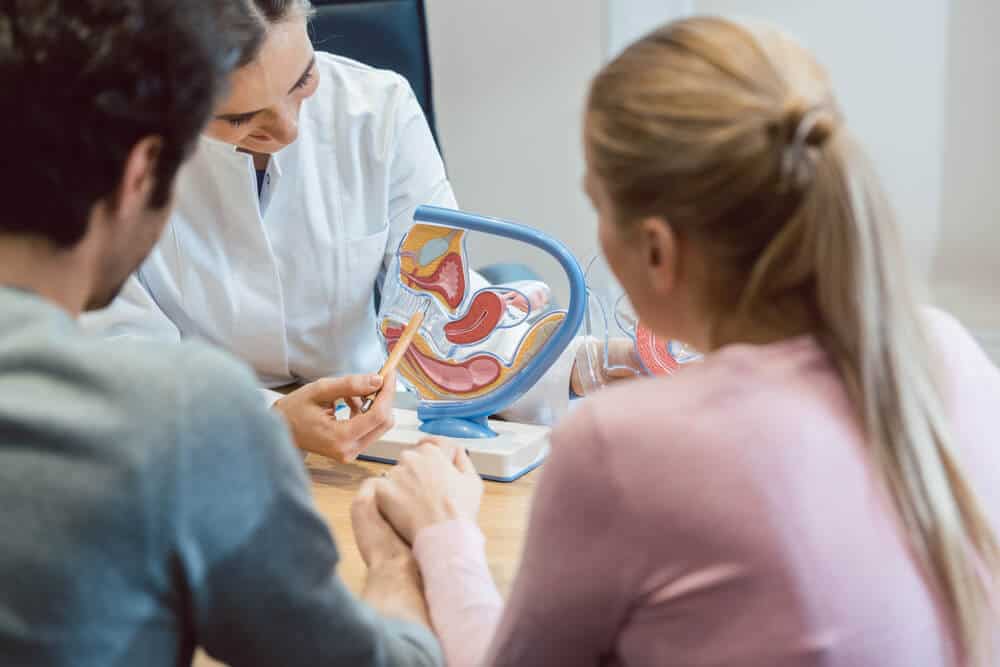What is primary infertility?
When a couple have not conceived after a year of trying for a baby, they are usually diagnosed with infertility. If they have never conceived in the past, then this is referred to as ‘primary infertility’. This is in contrast to secondary infertility, which the NHS defines as “where someone has had 1 or more pregnancies in the past but is having difficulty conceiving again.”
Infertility can be attributed to male factor, female factor or both. It can often be “unexplained infertility”, where the cause is unknown even after a full clinical assessment. There is a common misconception that female infertility is more common than male infertility. This is absolutely not the case with male infertility being equally prevalent as female infertility, so it is very important that both partners have a full infertility investigation.
Diagnosed with primary infertility, what next?
If you have just been diagnosed with primary infertility, you might want to know exactly what is wrong straight away. Unfortunately, it is not always that simple! Your GP may refer you to specialists for further investigation this may involve various different tests. These tests will help the clinicians to make a more specific diagnosis, so you know exactly what is causing the problem. Once discovered, your clinicians will outline the options available to you and help give you the best chance of conceiving. There are a variety of possible causes or diagnoses, including unexplained infertility (about 15% of couples). However, many couples will go on to conceive either naturally or through modern Assisted Reproductive Techniques (ART) such and IVF.
How to cope with primary infertility?
Being diagnosed with infertility, or most probably sub-fertility, can come as a shock, with an immediate worry that you may never have a child. This can be very frightening and upsetting for prospective parents. Studies have shown that the psychological impact of being diagnosed with infertility is comparable to people suffering with serious illnesses such as cancer and HIV. But there is also every reason to remain hopeful at this stage. Many types of infertility can be resolved through different treatments, medication or sometimes simply lifestyle changes and many couples do go on to conceive after an infertility diagnosis.
Be open with your partner so that you can support each other. It is also good to try and maintain a positive attitude, as assisted reproductive technology (ART) has improved to help increase the chances of success for couples who have struggled to conceive in the past. Our partners at Fertility Network UK also have support groups which can help you to cope. Other things, such as exercise and lifestyle changes can help support your mental health as well as boost your fertility. See some helpful tips below:
4 easy ways to help boost your fertility:
Get to and maintain a healthy weight
If you are underweight or overweight, it can negatively affect your fertility. The NHS advise that for most adults, an ideal BMI is in the 18.5 to 24.9 range. Eating a balanced diet and having a healthy but not overly strenuous exercise regime can help you to achieve this goal.
Supplement
Impryl is a fertility supplement for men and women and works by providing balanced support to your body’s natural metabolism, using active micronutrients. In this unique way it improves the quality of both egg and sperm cells and helps to improve your chances of success. It has been proven to improve pregnancy and live birth rates in clinical trials and is one of the only supplements on the market with evidence to support its effectiveness.
Stop smoking
In men, studies show smoking can lead to lower sperm count as well as a reduced sperm quality. For women, studies have displayed how smoking damages the quality of eggs released. On top of this, smoking is associated with an increased risk of miscarriage.
Addictions like smoking are very difficult to stop but if you are serious about starting or growing your family, we suggest you quit as soon as you can. Support is available through the NHS website or you can visit your GP.
Cut down on alcohol
Drinking excessive amounts of alcohol has been shown to negatively impact both male infertility and female infertility. Whilst drinking small amounts is fine, we advise you limit your alcohol intake as much as possible to give yourself the best chance of improving your fertility.








